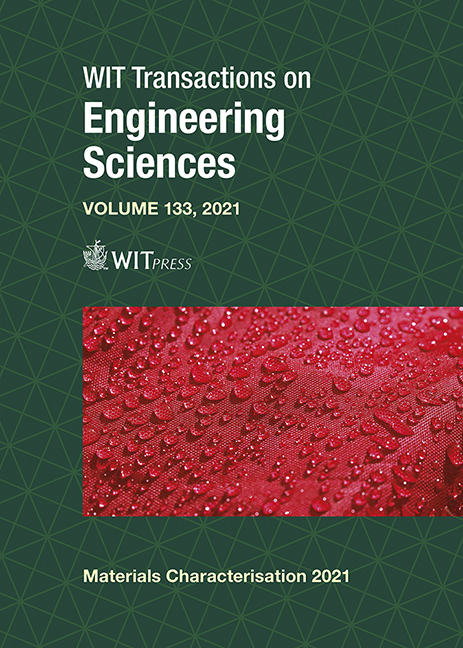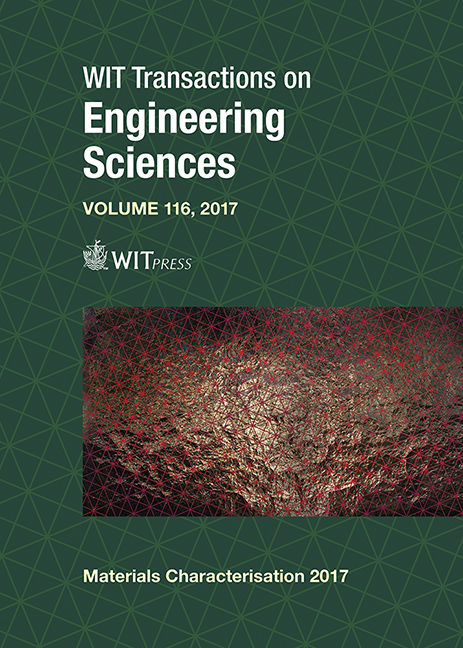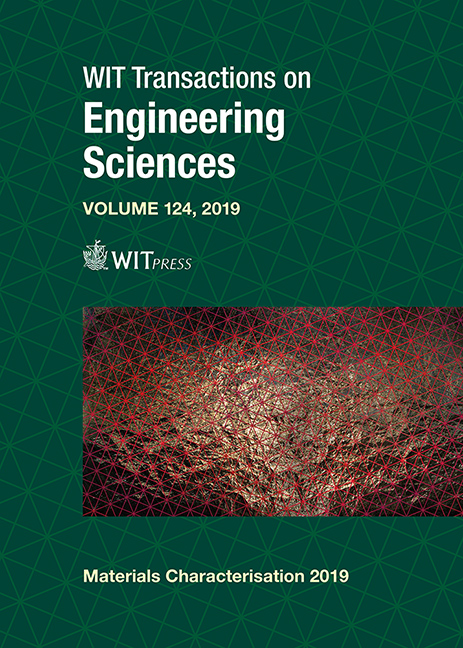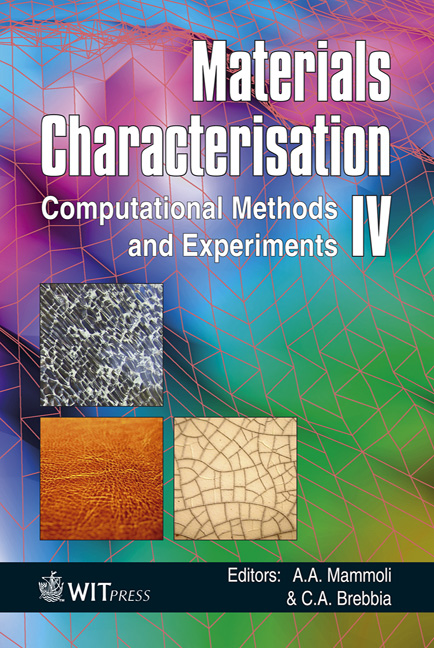Materials and Contact Characterisation X
Edited By: S. Hernández, University of A Coruña, Spain and Member of WIT Board of Directors; J. De Hossen, University of Groningen, The Netherlands; D. O. Northwood, University of Windsor, Canada
Price
£87.00 (free shipping)
ISBN
978-1-78466-437-4
eISBN
978-1-78466-438-1
Pages
194
Transaction Series
WIT Transactions on Engineering Sciences
Transaction Volume
133
Published
2021
Format
Hardback
With the aim to facilitate the dissemination of research from both academia and the industrial community, presented works from the 10th International Conference on Computational Methods and Experiments in Material and Contact Characterisation are included in this book. These papers discuss the latest developments in this rapidly advancing field.
The demand for high-quality production for both industry and consumers has led to rapid developments in materials science and engineering. This requires the characterisation of the properties of the materials.
Of particular interest to industry and society is the knowledge of the surface treatment and contact mechanics of these materials to determine the in-service behaviour of components subject to contact conditions. Modern society requires systems that operate at conditions that use resources effectively. In terms of components durability, the understanding of surface engineering wear frictional and lubrication dynamics has never been so important.
Current research is focussed on modifications technologies that can increase the surface durability of materials. The characteristics of the system reveal which surface engineering methods should be chosen and as a consequence, it is essential to study the combination of surface treatment and contact mechanics.
Combinations of different experimental techniques as well as computer simulation methods are essential to achieve a proper analysis. A very wide range of materials, starting with metals through polymers and semiconductors to composites, necessitates a whole spectrum of characteristic experimental techniques and research methods.
Topics covered include: Experimental and measurement techniques; Mechanical testing and characterisation; Composites; Characterisation at multiple scales; Corrosion and erosion; Damage, fatigue and fracture; Recycled and reclaimed materials; Emerging materials and processing technology; Materials for energy systems; Contact mechanics; Coatings and surface treatments; Tribology and design; Biomechanical characterisation and applications; Residual stresses; Polymers and plastics; Computational methods and simulation; Biological materials; Evaluation and material processing.








